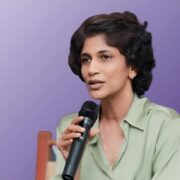New Delhi [India], November 26: Ayurveda, the ancient Indian system of holistic medicine, offers a personalised approach to health through principles like Prakriti (one’s natural constitution) and Vikruti (imbalances leading to illness). Today, the advent of artificial intelligence (AI) and machine learning (ML) is reshaping fields such as diagnostics, treatment planning, and drug discovery. At the intersection of Ayurveda and AI, emerging technologies promise improved diagnostic accuracy, more personalised treatments, and a blend of traditional knowledge with innovative tools.
Ayurveda’s Approach to Personalized Medicine
Ayurveda’s emphasis on personalised care revolves around balancing three Doshas—Vata (air and space), Pitta (fire and water), and Kapha (water and earth)—as imbalances among these elements are believed to lead to illness. Traditionally, the process of identifying such imbalances relies on the practitioner’s expertise in examining the patient’s physical, mental, and lifestyle factors. AI now offers the potential to transform these traditionally subjective assessments into standardised, precise solutions.


Bringing AI Objectivity to Ayurvedic Diagnostics Where Ayurvedic diagnosis has historically depended on experience and intuition, AI introduces objectivity and consistency. By analyzing large datasets, AI improves the accuracy of Prakriti and Vikruti assessments and is incorporated into mobile applications and online platforms for real-time health monitoring, making these tools widely accessible.
AI-Powered Tools for Prakriti and Vikruti Analysis
The Ayurvedic process of assessing Prakriti involves categorising individuals based on their physical, mental, and emotional characteristics. AI-powered tools now use machine learning algorithms to analyse data from questionnaires and health metrics, enabling precise assessments of Prakriti. These systems continuously monitor a person’s Vikruti, which can change with factors such as diet, environment, and lifestyle, offering the potential to detect imbalances before they result in illness.
Enhanced Pulse Diagnosis through AI
Nadi Pariksha, or pulse diagnosis, is a core diagnostic tool in Ayurveda that traditionally requires significant expertise. Modern AI advancements have led to pulse sensors that capture and interpret subtle variations in pulse readings, potentially indicating Dosha imbalances. Wearable devices equipped with these sensors allow for continuous data collection, with AI analysing the data to provide early warnings of imbalances.
Predictive AI Models for Customized Treatment
AI’s predictive abilities offer a new dimension to Ayurvedic treatment planning. By analysing extensive datasets, AI models predict the effectiveness of specific therapies tailored to an individual’s Prakriti, Vikruti, and medical history. For instance, algorithms can assess a patient’s Dosha imbalance and suggest herbal remedies, dietary adjustments, and lifestyle changes, tailoring care to individual needs and potentially forecasting disease progression for early intervention.
Innovations in Ayurvedic Drug Discovery with AI
The application of AI in Ayurvedic drug discovery is expanding rapidly. Polyherbal formulations, which aim to enhance therapeutic effects through the synergy of various herbs, are central to Ayurvedic practice. AI-driven analysis of bioactive compounds within herbs is helping optimise these combinations, potentially improving efficacy against a range of conditions.
Machine learning also enables predictions about interactions between herbs, such as Ashwagandha or Turmeric, and human biological systems. AI can also identify new applications for traditional herbs by analysing their molecular structures and bioactivity, which may contribute to treating modern health issues like inflammation and metabolic disorders.
AI-Enhanced Telemedicine for Ayurvedic Care
AI-driven telemedicine platforms provide new avenues for Ayurvedic consultations, diagnostics, and treatment guidance. These platforms analyse patient data to offer real-time insights and personalised recommendations based on Prakriti and Vikruti assessments. Integrating wearable devices and AI-powered diagnostics allows for ongoing monitoring of patient responses, making Ayurvedic care more accessible, especially for remote populations.
Scientific Validation of Ayurvedic Principles through AI
AI is increasingly significant in validating Ayurvedic concepts by quantifying treatment effectiveness and bridging the gap between traditional practices and modern biomedicine. AI-driven meta-analyses of Ayurvedic treatments use clinical trial data to better understand the pharmacological properties of Ayurvedic herbs and formulations, fostering a unified approach between Ayurvedic and allopathic healthcare practices.
Considerations and Challenges in AI-Driven Ayurveda
Implementing AI within Ayurveda raises challenges, notably regarding the ethical handling of personal health data, as large datasets are essential for effective AI functionality. Privacy and data security are crucial in maintaining public trust. Additionally, it is necessary to design AI systems that respect the holistic nature of Ayurveda, which emphasises the integration of mind, body, and spirit rather than reducing patients to data points.
Collaborative efforts among technologists, scientists, and traditional practitioners are essential to validate AI-based Ayurvedic tools, ensuring that AI supports rather than overshadows Ayurveda’s principles.
Conclusion
The integration of AI with Ayurveda offers promising advancements in personalised healthcare. AI-enhanced diagnostic tools, individualised treatment recommendations, pulse diagnosis, and telemedicine platforms enhance the precision and accessibility of Ayurvedic practice. Furthermore, AI is contributing to Ayurvedic drug discovery and scientific validation, potentially strengthening Ayurveda’s presence in contemporary healthcare.
As AI technology advances, it may play an essential role in modernising Ayurveda while upholding its holistic values. The fusion of ancient wisdom with cutting-edge technology could open new paths to health, ensuring Ayurveda’s continued evolution in serving future generations.
About the Author
Dr. R. C. Satish Kumar, M.D (Ayurveda), M.B.A (H.M), Professor & Coordinator – Interdisciplinary Institute of Indian System of Medicine (IIISM) at SRM Institute of Science and Technology. He has been practising Ayurveda for over 16 years, with expertise in treating Musculoskeletal disorders, Diabetes, Skin disorders, etc. To know more about IIISM at SRM visit https://www.srmist.edu.in/research/research-wings/iiism/
If you have any objection to this press release content, kindly contact pr.error.rectification@gmail.com to notify us. We will respond and rectify the situation in the next 24 hours.





